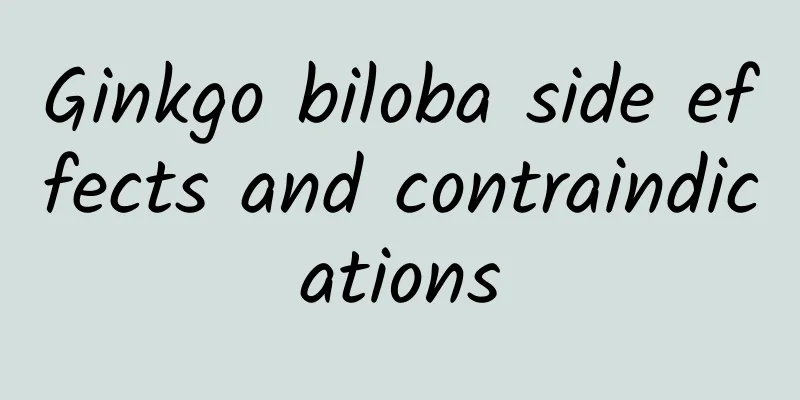What are the effects of lotus leaves?

|
We all know that mint is a cold plant. This plant is also used to treat many diseases as a traditional Chinese medicine. Some people also drink mint tea. In fact, drinking mint tea regularly can not only reduce internal heat, but also effectively lose weight. However, for patients with poor gastrointestinal function, they must not drink mint tea. Drinking mint tea is particularly likely to cause stomach cold. So what are the effects of mint leaves? The efficacy and effects of mint leaves - treating inflammation can relieve headaches, promote metabolism, and has a therapeutic effect on inflammatory symptoms of the respiratory tract. Mint leaves are antibacterial and anti-inflammatory. Mint leaves can be crushed and applied to local skin, which has the effects of cooling, relieving itching, anti-inflammatory and analgesic. The eight catechol acids contained in peppermint leaves are effective anti-inflammatory agents. The efficacy and function of mint leaves - stimulating the brain When we drink beverages containing mint ingredients, it can stimulate the brain, promote blood circulation, and induce sweating, which can be used to relieve summer heat and fever. The efficacy and functions of mint leaves - anti-inflammatory and analgesic. Mint contains factors such as menthol, which can have a cooling effect on the skin, so it can reduce inflammation, relieve pain, relieve itching, detoxify and evacuate wind-heat. Menthol can stimulate the receptors of the skin's nerve endings, producing a cool sensation followed by a slight burning sensation, slowly penetrating into the skin, causing prolonged congestion and achieving a therapeutic effect. Mint leaves can increase the secretion of respiratory mucus. It removes the mucus attached to the mucosa, reduces foamy sputum, and increases the effective ventilation volume of the respiratory tract. The efficacy and functions of mint leaves - strengthening the stomach and promoting digestion. Mint can be added to tea to strengthen the stomach, dispel wind, eliminate phlegm, promote bile secretion, and resist spasms. It can also improve symptoms such as colds, fever, sore throat, swelling and pain, itchy skin, abdominal bloating, diarrhea, indigestion, and constipation. However, mint leaves are cool, so people with lung deficiency, cough, and yin deficiency and sweating should try to drink less mint leaf tea. The effects and functions of mint leaves - lowering blood pressure, nourishing the heart. The efficacy and function of mint leaves - Relieve emotions. Its cool aroma can also calm tense emotions, make the body and mind happy, and help sleep. Drinking mint tea can enhance physical strength, calm the nerves, aid digestion, and prevent bad breath when mixed with various herbal teas. The efficacy and functions of mint leaves - treatment of gastric ulcers. Regular consumption of foods made with mint leaves has a good protective effect on the gallbladder and liver and can be used to treat gastric ulcers. The efficacy and functions of mint leaves - Relieving burns and scalds Mint leaves also contain anti-inflammatory agents, which have miraculous effects on burns and scalds. Not only do they make people less uncomfortable with the burning sensation, but they can also prevent the spread of inflammation. |
<<: The efficacy and function of stir-fried Shenqu
>>: How to store fresh dandelions
Recommend
The efficacy and function of yellow loquat leaves
After thousands of years of sedimentation and acc...
People who feel that "nothing is interesting" may not be depressed, but they are ignoring this crisis.
Have you ever had this question: "Why do som...
Hypertension is plaguing more and more young people...
When talking about patients with hypertension, th...
What are the characteristics of peony bark
Peony bark is a type of traditional Chinese medic...
Horrible! A man sleepwalked and jumped out of the window on the 7th floor! The "culprit" of sleepwalking may be...
Expert of this article: Xue Shimin, deputy chief ...
The efficacy and function of yellow vine leaves
Everyone is familiar with yellow ivy leaves, of c...
China's Sky Eye has a "pot-cleaning" robot, it looks like this →
The "China Sky Eye" (FAST) is the world...
The efficacy and function of Xungufeng
Many people know that Xungufeng has unique therap...
The efficacy and function of Tianzhuhuang
There are so many medicinal herbs in the world, a...
The efficacy and function of long-fruit mountain orange
Many people are very familiar with the long-fruit...
The efficacy and function of Yunnan small membrane covered fern
Everyone is familiar with the Yunnan small membra...
Pillows are only for your head? Maybe you have been doing it wrong for so many years
In our daily understanding, a pillow, as the name...
The pursuit of complete irrational numbers: challenging the limits of mobile phone calculators
Irrational numbers are numbers that cannot be exp...
The efficacy and function of the Bole tree
The medical value of the bole tree is beyond our ...









